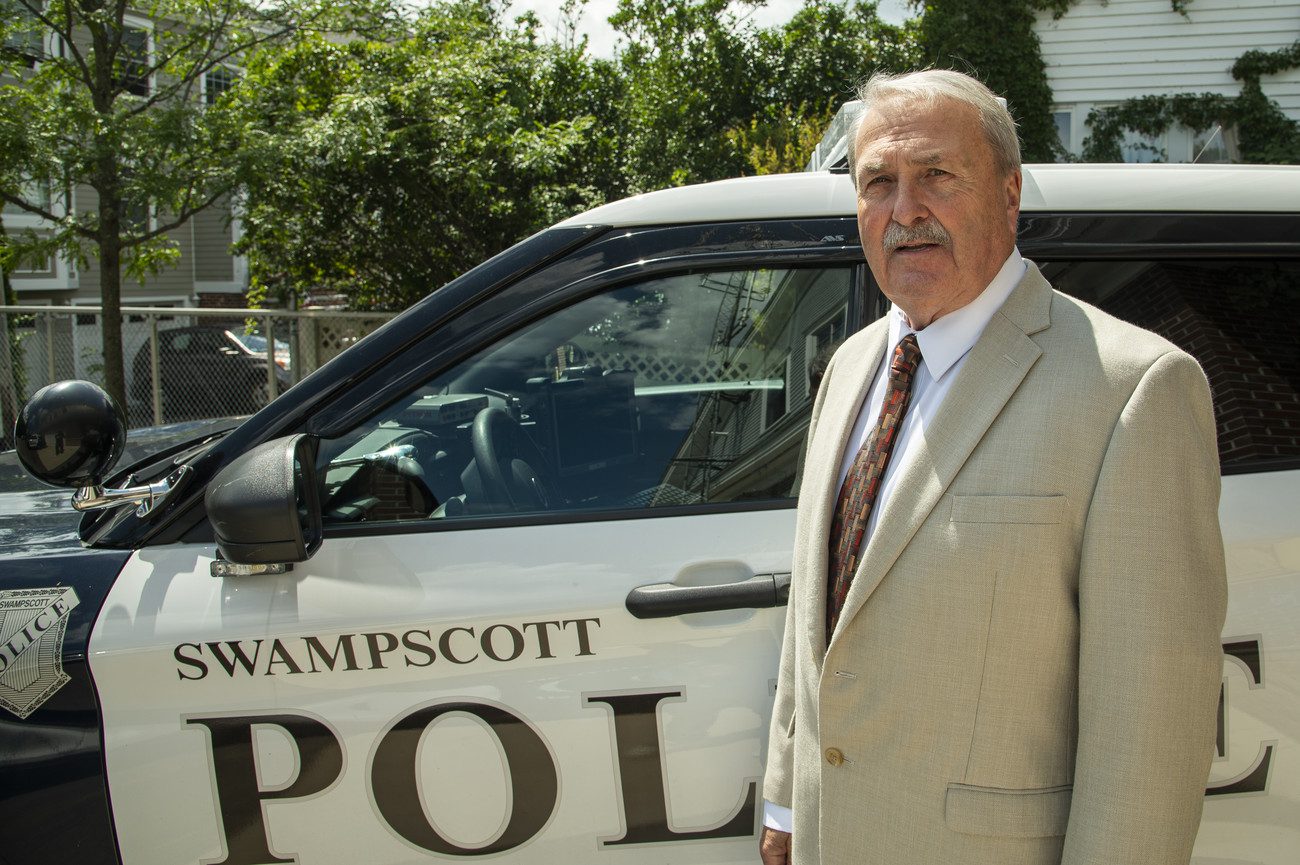SWAMPSCOTT — As the town’s Police and Fire departments make the transition away from the civil service hiring system, one hurdle stands out: finding a new police chief.
Heading that process is the police department’s Interim Chief David Kurz, who said that the process will include plenty of input from citizens of the town.
“It really comes down to … who do they want to work with and who they want to be in the community for an extended period of time,” Kurz said.
Kurz, who grew up in Saugus, has close to 50 years of law enforcement experience, and is serving as Swampscott’s interim chief through a contract with New Hampshire-based Municipal Resources, Inc. (MRI). He began his career in Gorham, Maine, he said, because at the time, the same civil service system that Swampscott is currently leaving behind made it difficult for him to get a job in his home state. He progressed to eventually become chief of that department before moving on to the position of deputy director of the Maine Drug Enforcement Agency.
However, Kurz said, his forte has always been small police departments, which led him to eventually take the position of police chief in Durham, N.H. in 1996 until he retired in August 2020.
According to Kurz, 87 percent of police departments in the United States have less than 20 officers (Swampscott has 32). He has been an advocate for more attention and funding going to these small departments, which often don’t have the resources for important in-depth training and other modern techniques.
Working with the International Association of Chiefs of Police (IACP), Kurz helped start the newsletter “Big Ideas for Small Agencies,” writing about the nuances of managing smaller police departments. Some of his writings were cited or included in President Barack Obama’s “Task Force on 21st Century Policing” report.
Now, in Swampscott, Kurz hopes to bring all of his experience to the table to help the town choose its new chief of police.
He said that with other communities that MRI has worked with in the past, they have been able to work with local governments to determine the most important qualities they need from a chief. In Swampscott, those include community engagement, experience with creating succession plans and capital improvements plans and managing a smaller department.
“Someone from Boston PD, for instance, may not have the same qualifications of someone from a smaller agency,” Kurz said. “My analogy is that as a police chief in a smaller agency, if I call the meeting, I’m setting up the chairs.”
MRI will choose a smaller group of viable candidates from the applicant pool to recommend to the town, something that Kurz said will take at least into the late fall.
Leaving the civil service system means that the applicant pool will be more diverse and, hopefully, help the department become more reflective of the community it serves. Kurz said he hopes to see more women and people of color hired to the department.
“It should be more reflective of the community and give us the ability to look and recruit people other than those who are just sent to us from a list from civil service,” he said.
Meanwhile, Kurz hopes to enhance the department’s day-to-day operations. He said that former Chief Ron Madigan, who retired last month, left him with a great police department, but that there is always room for improvement.
He hoped that his unbiased outside perspective will help the department move forward.
“What I hope to deliver is somewhat of a cafeteria plan of recommendations, which they may not all be embraced,” Kurz said. “I’ve always been of the mind that the more opinions you have to make a decision, at least you hear what they are … the more you can do that, the better decision is arrived at.”

